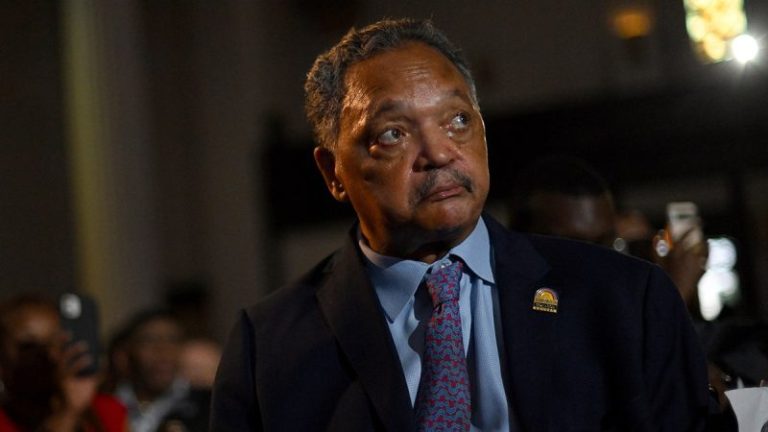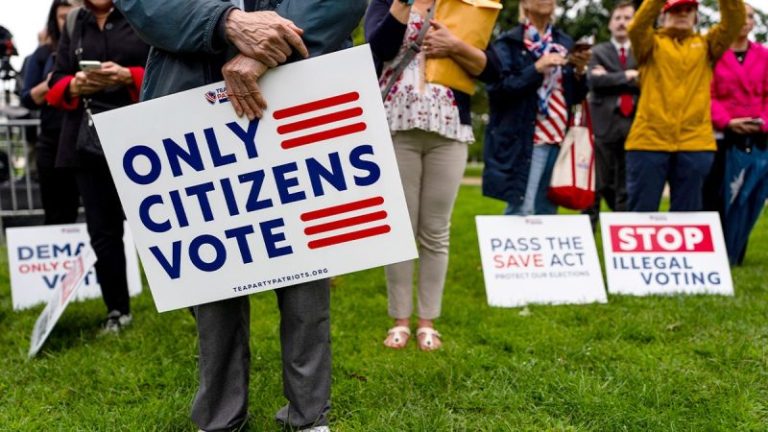Canada One Mining Corp. (TSXV: CONE,OTC:COMCF) (OTC Pink: COMCF) (FSE: AU31) (‘Canada One’ or the ‘Company’) is pleased to report high-grade gold results, accompanied by copper and silver values, from the Reco target at the Copper Dome Project, (‘Copper Dome’, ‘Project’ or ‘Property’) located adjacent to the Hudbay Minerals Inc. producing Copper Mountain Mine, Princeton, B.C.
ROCK SAMPLING HIGHLIGHTS
| SAMPLE ID |
GOLD (G/T) |
SILVER (G/T) |
COPPER (%) |
| |
|
|
|
| C0066671 |
8.17 |
6.83 |
1.75 |
| |
|
|
|
| C0066670 |
9.96 |
9.62 |
0.78 |
Table 1: Notable Rock Grab Sample Results from the 2025 Exploration Program at the Reco target.
Reco Target Sampling
In the fall of 2025, the geological team visited the Reco target, a previously known showing, and established seven new geological stations and collected four fresh rock samples (C0066668-C0066671). The two highest-grade samples collected from Reco were C0066670 (9.96 g/t Au, 9.62 g/t Ag, 0.78% Cu) and C0066671 (8.17 g/t Au, 6.83 g/t Ag, 1.75% Cu). Both samples returned elevated iron values, with sample C0066670 recording the highest iron content of the 2025 program at 12.75% Fe, reflecting intense iron oxide alteration and the potential weathering of significant sulphide mineralization at the target.
Reco is located approximately 1.8 km SSE of the Friday Creek potassic zone. Assay results from Friday Creek, also collected during the fall 2025 program, are pending release.
Peter Berdusco, President and CEO of Canada One, commented: ‘The presence of high-grade gold at Reco, part of the Copper Dome Project, significantly strengthens Canada One’s exploration thesis. The gold target sits strategically between our primary porphyry targets at Copper Dome, and the presence of near-surface gold is particularly promising given how porphyry systems often generate economically meaningful flanking gold zones—enhancing both the district-scale potential and the strategic value of our project portfolio.’
Significance of Results
Results from the Reco target meaningfully expands the Copper Dome opportunity from a ‘copper-porphyry only’ story into a broader multi-commodity mineral system that also includes a compelling high-grade, potentially near-surface, gold-silver-copper target. The standout grab samples are particularly encouraging, as such grades can signal a robust hydrothermal event capable of generating economically meaningful high-grade shoots on the margins of, or structurally linked to, porphyry centers.
Strategically, Reco’s location between key porphyry targets raises the possibility that this gold-bearing structure could represent a flanking zone or structurally focused expression of the same district-scale system, improving drill targeting and increasing the project’s potential value by adding higher-grade upside and development optionality beyond bulk-tonnage porphyry copper alone.
While rock samples are inherently selective and not necessarily representative of average grade, results of this tenor strongly justify systematic follow-up to define continuity, true width, and controls on mineralization.
Reco Planned Follow-up
Building on these promising results, the company plans to advance exploration at the target in 2026 through a larger-scale prospecting and mapping program. Additional rock sampling will help better define the extent of known mineralization, while detailed structural mapping will support interpretation of potential gold sources as they relate to the surrounding porphyry targets.
Geological Discussion
Reco was investigated in 2025 to locate and accurately geo reference historical workings and mineral showings. According to the MINFILE record, the target was explored as early as 1907, when a 167-metre-long adit was driven beneath vein outcrops between 1907 and 1909.
Reco is hosted within fine-grained volcanic and volcano sedimentary rocks of the Nicola Group, including andesite and cherty tuffs. Intense silicification was documented, along with strong iron oxidation and sericitization of the host rocks. Pyrite and copper oxide minerals are common, with localized development of chalcopyrite stringers. The observed alteration assemblage and sulphide mineralogy are consistent with a phyllic alteration domain.
Reco consists of a caved historical adit, with extensive exposure of a volcanic wall rock resulting from historical manual scree removal. Mineralization occurs as intensely oxidized, sulphidic calcite vein material hosted within a shear zone approximately 2-3 m wide. The vein and shear zone are steeply dipping and strike NE-SW. Structural measurements collected in 2025 indicate an orientation of 210°/71°, while historical measurements report orientations of 005°/78° and 038°/80°. The vein has been traced on surface for approximately 120 m and ranges from 0.1 to 1.8 m in width.
The vein is interpreted to have infilled a brittle fault zone, as evidenced by shattered host rock and the presence of gouge material adjacent to the vein. Intense supergene alteration of the wall rock is expressed as pervasive goethite and jarosite development at the target.
Figure 1: (A) Rock sample C0066671 from the RECO target, showing mineralized sedimentary wall rock adjacent to a mineralized shear zone. The sample returned assays of 8.17 g/t Au, 6.83 g/t Ag, and 1.75% Cu.
(B) Mineralized vein fill and gouge hosted within the shear zone at the target.
To view an enhanced version of this graphic, please visit:
https://images.newsfilecorp.com/files/10074/284307_canadaoneimg1.jpg
Figure 2: 2025 rock sample locations with historical sampling at the RECO target area.
To view an enhanced version of this graphic, please visit:
https://images.newsfilecorp.com/files/10074/284307_cac78b5044a75aac_006full.jpg
Quality Assurance / Quality Control (QAQC)
All rock samples were collected from the fall 2025 fieldwork program and were submitted to ALS Geochemistry – Kamloops to be analyzed for gold and platinum group elements (PGM-ICP24 50 g fire assay), and multi-element geochemistry, including elements Cu, Pb, Zn, Co, and Ag (method ME-MS61).
Figure 3: Overview map of the Copper Dome project sowing sample and data stations from the 2025 exploration program as well as project infrastructure.
To view an enhanced version of this graphic, please visit:
https://images.newsfilecorp.com/files/10074/284307_cac78b5044a75aac_007full.jpg
About The Copper Dome Project
Copper Dome is located in the lower Quesnel Trough porphyry belt, one of British Columbia’s most prolific mining districts. The Project directly adjoins Hudbay Minerals Inc.’s producing Copper Mountain Mine to the north, which the company reports as having Proven and Probable Reserves of ~367 Mt at 0.25 % Cu, 0.12 g/t Au, and 0.69 g/t Ag (Hudbay Minerals Inc., 2023)*. Multiple mineralized zones have been identified across the Property, with historical drilling confirming high-grade copper associated with northeast-trending structures similar to those hosting mineralization at Copper Mountain.
The technical and scientific information regarding the adjacent Copper Mountain Mine is sourced from Hudbay Minerals Inc.’s published reports. Mineralization at Copper Mountain should not be considered indicative of the mineralization on the Copper Dome Project.
Copper Dome benefits from excellent infrastructure, enabling year-round access, cost-efficient exploration, and a stable, low-risk jurisdiction.
Historical Work Completed
- Geophysics: 51 km of induced polarization (IP); airborne magnetic and electromagnetic (EM) coverage over ~50% of the Property
- Sampling: 2,253 soils and 378 rocks collected
- Drilling: 8,900+ m of diamond drilling
- Trenching: Over 1 km excavated
With a five-year drill permit in place, the Company is focused on advancing the Copper Dome toward drill-ready target definition.
* Reference: Hudbay Minerals Inc. (2023). NI 43-101 Technical Report – Updated Mineral Resources & Mineral Reserves Estimate, Copper Mountain Mine, Princeton, British Columbia. Effective date: December 1, 2023. Qualified Person: Olivier Tavchandjian, Ph.D., P.Geo.
About Canada One
Canada One Mining Corp. is a Canadian junior exploration company focused on copper-the critical metal powering the global energy transition. The Company advances projects from discovery through resource definition with disciplined, data-driven exploration and responsible practices. Its flagship Copper Dome Project, near Princeton, British Columbia, targets a porphyry copper-gold system in a Tier-1 jurisdiction. Canada One aims to deliver sustainable growth and long-term value for shareholders and local communities.
Acknowledgement
Canada One acknowledges that the Copper Dome Project is located within the traditional, ancestral and unceded territory of the Smelqmix People. We recognize and respect their cultural heritage and relationship to the land, honoring their past, present and future.
Qualified Person
The scientific and technical information in this news release has been reviewed and approved by Ali Wasiliew, P.Geo., an independent Qualified Person as defined by NI 43-101 – Standards of Disclosure for Mineral Projects.
Contact Us
For further information, interested parties are encouraged to visit the Company’s website at www.canadaonemining.com, or contact the Company by email at info@canadaonemining.com, or by phone at 1.877.844.4661.
On behalf of the Board of Directors of
Canada One Mining Corp.
Peter Berdusco
President
Chief Executive Officer
Interim Chief Financial Officer
Forward-Looking Statements
This press release includes certain ‘forward-looking information’ and ‘forward-looking statements’ (collectively ‘forward-looking statements’) within the meaning of applicable Canadian securities legislation. All statements, other than statements of historical fact, included herein, without limitation, statements relating to the future operating or financial performance of the Company, are forward looking statements. Forward-looking statements are frequently, but not always, identified by words such as ‘expects’, ‘anticipates’, ‘believes’, ‘intends’, ‘estimates’, ‘potential’, ‘possible’, and similar expressions, or statements that events, conditions, or results ‘will’, ‘may’, ‘could’, or ‘should’ occur or be achieved. Forward-looking statements in this press release relate to, among other things: statements relating to the anticipated timing thereof and the intended use of proceeds. Actual future results may differ materially. There can be no assurance that such statements will prove to be accurate, and actual results and future events could differ materially from those anticipated in such statements. Forward-looking statements reflect the beliefs, opinions and projections on the date the statements are made and are based upon a number of assumptions and estimates that, while considered reasonable by the respective parties, are inherently subject to significant business, technical, economic, and competitive uncertainties and contingencies. Many factors, both known and unknown, could cause actual results, performance or achievements to be materially different from the results, performance or achievements that are or may be expressed or implied by such forward-looking statements and the parties have made assumptions and estimates based on or related to many of these factors. Such factors include, without limitation: the timing, completion and delivery of the referenced assessments and analysis. Readers should not place undue reliance on the forward-looking statements and information contained in this news release concerning these times. Except as required by law, the Company does not assume any obligation to update the forward-looking statements of beliefs, opinions, projections, or other factors, should they change, except as required by law.
TSX Venture Exchange Disclaimer
Neither the TSX Venture Exchange nor its Regulation Services Provider (as that term is defined in the policies of the TSX Venture Exchange) accepts responsibility for the adequacy or accuracy of this release.
To view the source version of this press release, please visit https://www.newsfilecorp.com/release/284307










